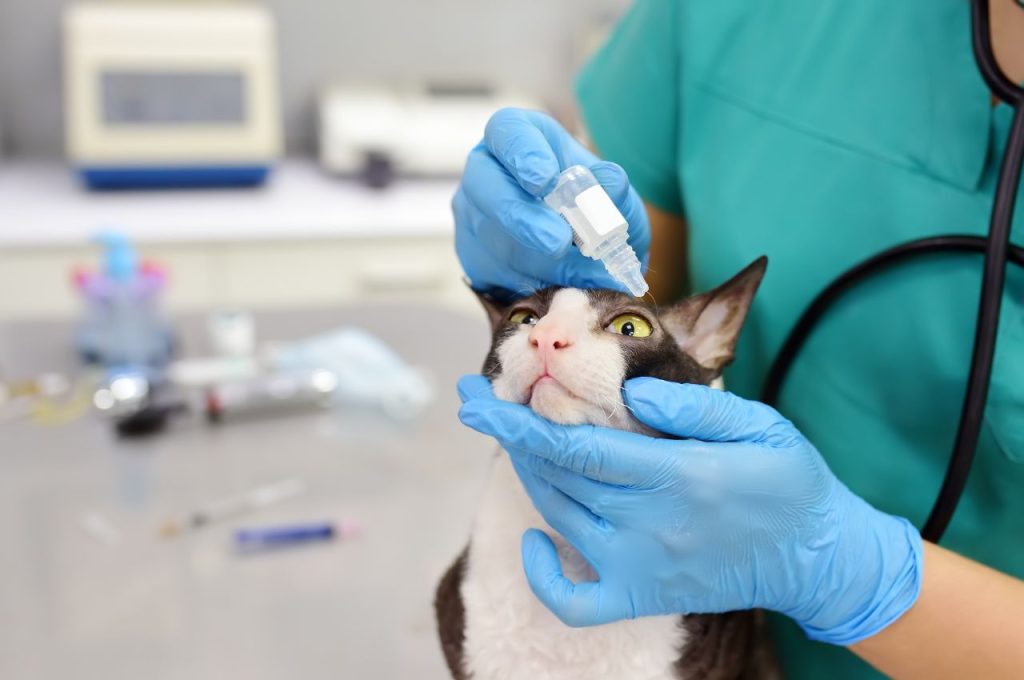Cat allergies affect millions of people worldwide, and finding an effective treatment can be a game-changer for those suffering from allergic reactions. While some may assume that the only solution is to avoid cats altogether, there are various treatment options available that can help alleviate symptoms and improve the quality of life for cat allergy sufferers.
One of the most significant aspects of cat allergy treatment is immunotherapy, also known as allergy shots. This treatment involves introducing small amounts of cat allergens into the body to gradually desensitize the immune system. Over time, this can reduce the severity of allergic reactions and provide long-term relief. Studies have shown that allergy shots can be highly effective, with up to 85% of patients experiencing improvements in their symptoms. This makes immunotherapy a promising solution for those seeking a more permanent solution to their cat allergies.
If you’re suffering from cat allergies, there are several treatments available to help alleviate your symptoms. Over-the-counter antihistamines can provide temporary relief by blocking the effects of the allergen. Prescription medications, such as nasal sprays and eye drops, can be more effective in managing symptoms.
Understanding Cat Allergy Treatment
Cat allergies can be a significant source of discomfort for individuals who love cats but are allergic to them. The symptoms of cat allergies can range from mild to severe, including sneezing, coughing, wheezing, itchy and watery eyes, and even asthma attacks. If you’re someone who experiences these symptoms, you might be wondering about the different treatment options available for cat allergies.

When it comes to cat allergy treatment, several approaches can help alleviate symptoms and improve overall quality of life. These treatments can be divided into three main categories: environmental control, medication management, and immunotherapy. Each approach has its benefits and considerations, and it’s essential to understand the options available to make an informed decision about the best course of action.
If you’re considering cat allergy treatment, it’s crucial to consult with a healthcare professional who specializes in allergies. They can evaluate your symptoms, conduct tests to confirm the presence of a cat allergy, and recommend the most appropriate treatment options based on your specific needs. By understanding the available treatments, you can take steps to manage your symptoms and continue to enjoy the company of feline friends.
Environmental Control
One of the essential aspects of cat allergy treatment is environmental control. This approach involves minimizing exposure to allergens found in cat dander, urine, and saliva. By reducing the presence of these allergens in your environment, you can significantly decrease the severity and frequency of your symptoms.

To implement environmental control measures, consider the following strategies:
- Keep cats out of the bedroom or other areas where you spend significant amounts of time.
- Use high-efficiency particulate air (HEPA) filters in your home to trap allergens.
- Vacuum and clean your home frequently to remove cat hair and dander.
- Wash your hands and face after interacting with cats.
- Consider using allergen-proof bedding covers to reduce exposure during sleep.
These environmental control measures can complement other treatment options and provide significant relief for individuals with cat allergies. However, it’s important to note that environmental control alone may not be enough to fully manage severe allergies, and additional treatment methods may be necessary.
Medication Management for Cat Allergies
If environmental control measures aren’t sufficient to manage your cat allergies, medication may be recommended by your healthcare professional. Medications can help alleviate symptoms and provide relief, allowing you to comfortably coexist with cats.
There are several types of medications commonly used for cat allergy treatment:
- Antihistamines: These medications block the effects of histamine, a chemical released by the immune system during an allergic reaction. They can help relieve itching, sneezing, and runny nose.
- Nasal corticosteroids: These nasal sprays reduce inflammation in the nasal passages, relieving congestion and other related symptoms.
- Decongestants: These medications can provide temporary relief from nasal congestion and sinus pressure but should be used cautiously and for short periods to avoid rebound congestion.
- Leukotriene modifiers: These medications target the chemicals that contribute to allergic reactions, helping to control symptoms such as wheezing and shortness of breath.
- Allergy shots: Also known as allergen immunotherapy, this treatment involves gradually exposing the body to the allergen in small, controlled doses to reduce the immune system’s sensitivity over time. Allergy shots are often recommended for individuals with severe allergies who don’t respond well to other treatments.
It’s important to consult with your healthcare professional before starting any medications for cat allergies. They can assess your symptoms, medical history, and potential medication interactions to determine the most appropriate option for you.
Immunotherapy for Cat Allergies
Immunotherapy, also known as allergy shots, is a long-term treatment option for cat allergies. This approach involves receiving regular injections of gradually increasing amounts of the cat allergen to build tolerance and reduce symptoms over time.
Allergy shots work by retraining the immune system’s response to the cat allergen, gradually decreasing sensitivity and minimizing the severity of allergic reactions. This treatment option is typically recommended for individuals with severe allergies that significantly impact their quality of life and who have not responded well to other forms of treatment.

To start immunotherapy, you’ll need to consult with an allergist or immunotherapy specialist who will conduct tests to confirm your cat allergy. They will then create an individualized treatment plan that involves regular injections over several years, gradually increasing the dosage of the allergen.
Immunotherapy requires a commitment to a long-term treatment plan, but it can provide significant relief for individuals with severe cat allergies. It’s essential to discuss the potential benefits and risks of this treatment option with a healthcare professional before making a decision.
Conclusion
Cat allergy treatment encompasses various approaches, including environmental control, medication management, and immunotherapy. Environmental control measures can help reduce allergen exposure, while medications can alleviate symptoms and provide relief. Immunotherapy, in the form of allergy shots, offers a long-term solution for severe allergies. It’s crucial to consult with a healthcare professional to determine the most appropriate treatment plan based on your specific needs.
By understanding the available treatment options for cat allergies, you can take proactive steps toward managing your symptoms and maintaining a harmonious relationship with your feline companions.
Remember to always consult with a healthcare professional for personalized advice and guidance regarding your specific cat allergy treatment.
